

2024 Annual Impact Report


Letter from MTF President
Erica L. Liebelt, MD, FACMT
President, Board of Directors
Medical Toxicology Foundation
I hope that you will take a few minutes and review the 2024 Medical Toxicology Foundation Impact Report as it truly reflects the significant impact that ALL of our donors make in fulfilling our vision and mission in advancing the field of medical toxicology. How? By funding initiatives and programs that help the education, training, and research of current and potentially future medical toxicologists.
The MTF Board has been very thoughtful and strategic in its utilization of funds, ensuring that all programs align with our mission and give back to our members as well as a wide range of trainees. The breadth and diversity of these programs-- education, research, medical toxicology in industry rotation, and travel awards--and the awardees are highlighted in this report. They continue to provide possibilities for a wide range of medical students, residents, fellows and practicing medical toxicologists, both in the US and internationally.
In 2024 the new Carol R. Angle Pediatric Toxicology Travel award was established, thanks to the generous gift of Dr. Angle, a legendary pediatrician and medical toxicologist who has contributed and impacted our specialty on many levels. This funding facilited an opportunity for pediatric medical students with an interest in pursuing medical toxicology fellowship traning to attend the 2025 ACMT Annual Scientific Meeting in Vancouver. Perhaps, you might also consider making an ongoing gift to help support a current or even new program.
Finally, I personally believe that donating something from yourself is a major mood-booster, which is something I have needed in the last several months. The knowledge that I’m helping others is hugely empowering and, in turn, makes me feel happier and more fulfilled.
Please consider making a gift to the MTF and having an impact on numerous individuals and our specialty.


About the Medical Toxicology Foundation (MTF)


Funding Priorities
A poisoning is reported every 15 seconds in the United States. Advancing knowledge in this rapidly changing field is critical to providing the best care possible. The MTF strive to improve patient care by:
- Supporting topical educational programming related to medical toxicology.
- Focusing on the improvement of quality of care for patients experiencing injury or illness related to the many areas of medical toxicology.
The MTF provides opportunities to engage and encourage future generations of medical toxicologists by:
- Supporting medical toxicologists early in their careers by offering unique travel awards and training experiences.
- Providing mentoring and networking opportunities for medical students, residents and fellows.
The MTF supports innovative research by:
- Being a sustainable source of research grants for medical toxicologists by funding forward-thinking projects.
- Focusing on projects that support the prevention and treatment of patients harmfully impacted by drugs, chemicals, and natural toxins and improve the practice of our physicians.
Collaboration is essential as medical toxicologists work in many different settings and capacities.
- Engaging in partnerships with other organizations sharing common objectives.
- Increasing awareness and effectiveness across related specialties including emergency medicine, addiction medicine, pediatrics, pharmacology and others.
The Medical Toxicology Foundation (MTF), is a 501(c)3 non-profit organization established by ACMT in 2009. The MTF provides multiple opportunities to further education and training in medical toxicology through travel awards to ACMT’s Annual Scientific Meeting, research grants, and educational opportunities such as a fellowship rotation in industry program, and collaborations with other medical associations. As the philanthropic arm of the American College of Medical Toxicology (ACMT), the MTF is where potential meets opportunity, and together, we are helping to meet the demand for pursuing excellence in the field of medical toxicology.
What is Medical Toxicology? Medical Toxicology is a sub-specialty of medicine with a focus on the prevention, evaluation, treatment, and monitoring of injury and illness from exposure to drugs and chemicals, as well as biological and radiological agents. Medical toxicologists work in clinical, academic, governmental and public health settings, and provide poison control center leadership.
Important areas of medical toxicology include acute drug poisoning; adverse drug events; substance use disorders, addiction and withdrawal; chemicals and radiologic materials; terrorism preparedness; venomous bites and stings; and environmental and workplace exposures.
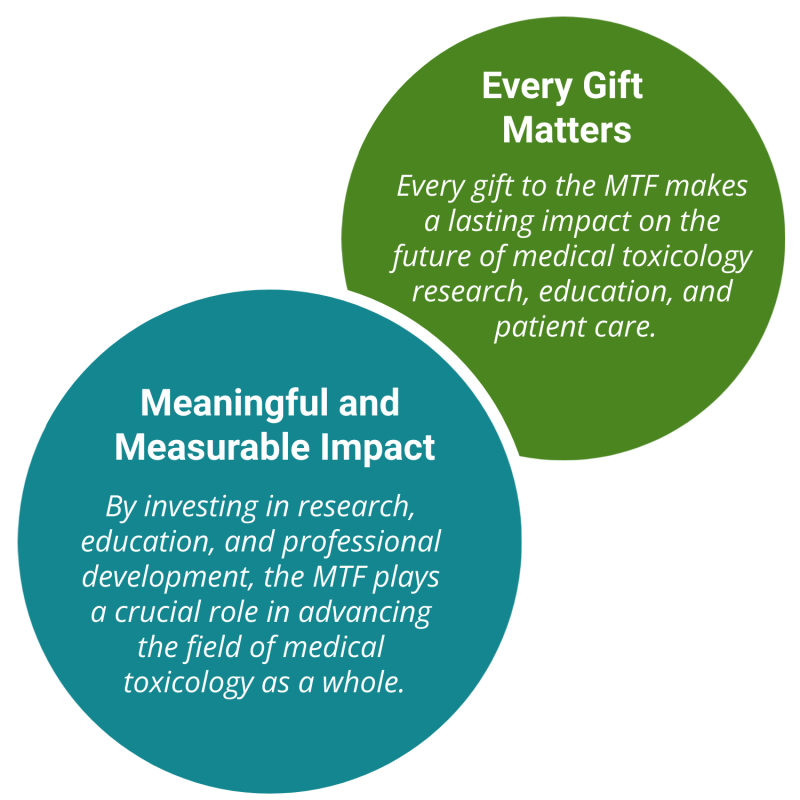
-
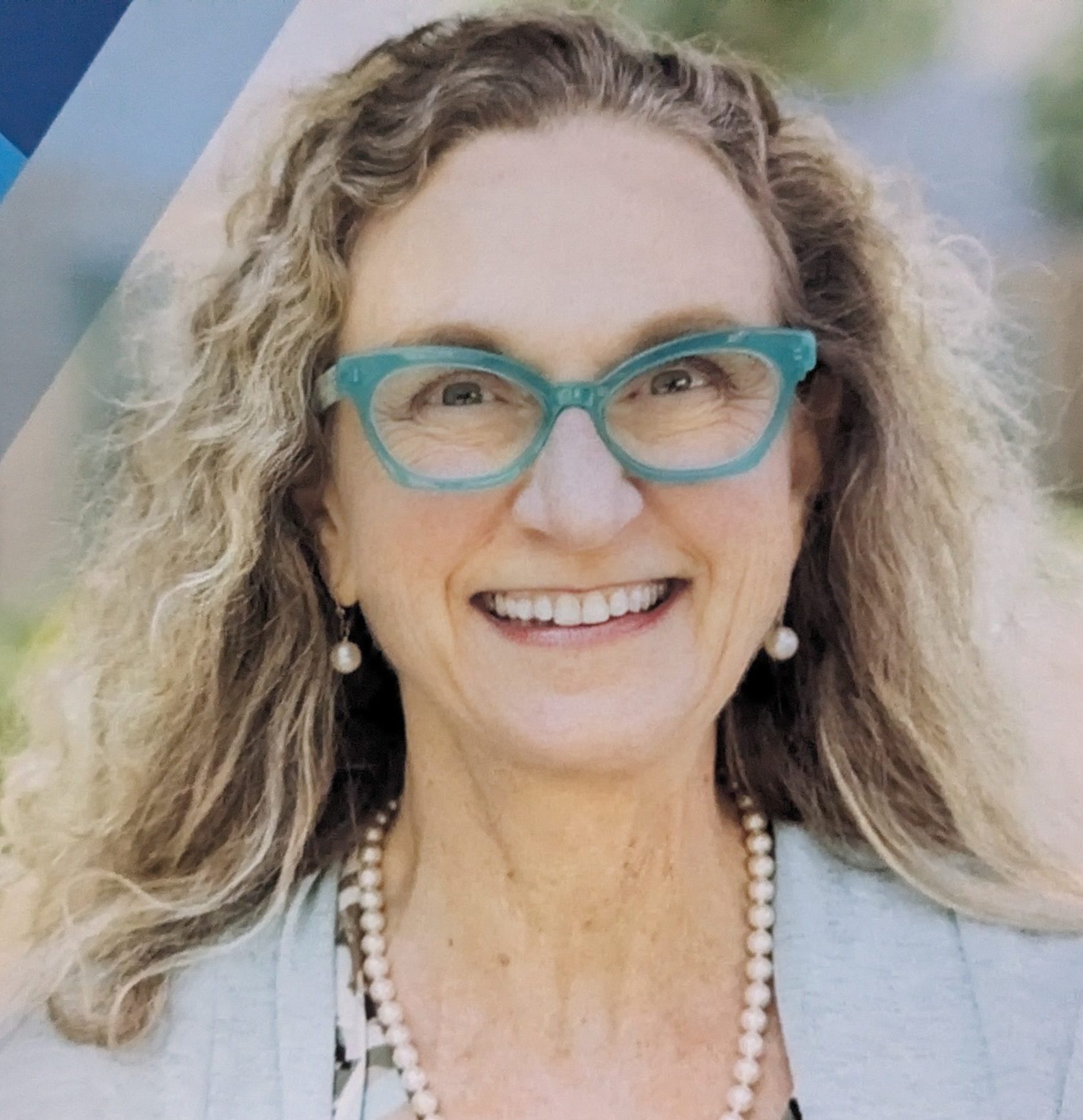
Erica Liebelt, MD, FACMT
MTF Board PresidentDr. Erica Liebelt has recently transitioned her career and is now a pediatrician at Blue Ridge Health - Rainbow Pediatrics where she is a primary care physician working in a FQHC (federally qualified health clinic) in rural Western North Carolina as well as serving a pediatric hospital physician for the community hospital. Part of her practie is focused on poison prevention initiatives and identifying mental health and substance use disorders in the vulnerable pediatric and adolescent populations. -
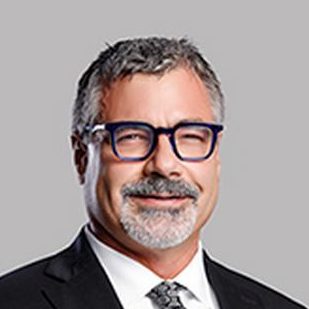
Timothy Wiegand, MD, FACMT
MTF Board Secretary/TreasurerDr. Wiegand is an Associate Clinical Professor in the Department of Emergency Medicine at the University of Rochester Medical Center (URMC) and also a volunteer faculty member of the SUNY Upstate Medical Toxicology Fellowship program. Read full bio>> -
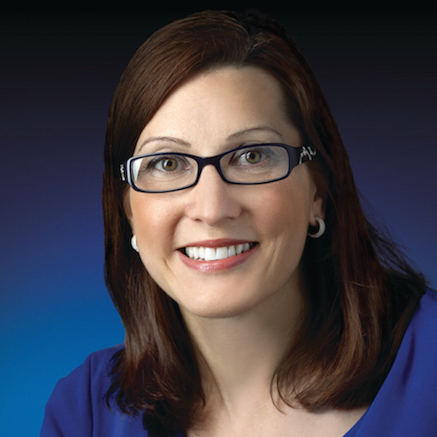
Maryann Amirshahi, PharmD, MD, MPH, FACMT
MTF Board MemberDr. Amirshahi is currently an Associate Professor of Emergency Medicine at the Georgetown University School of Medicine and practices clinically at MedStar Washington Hospital Center and Children’s National Medical Center in Washington, DC. Read full bio>> -
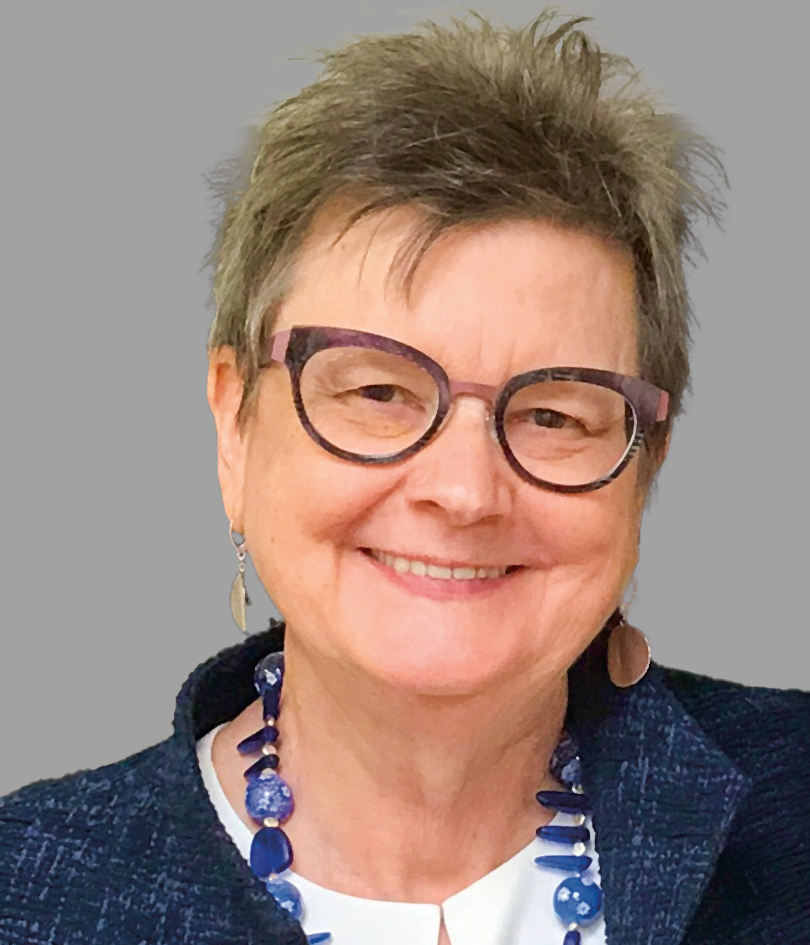
Marsha Ford, MD, FACMT
MTF Board MemberDr. Marsha Ford, now retired, has had a long and distinguished career during which she held many progressive roles over 30 years with the Carolinas Healthcare System and Department of Emergency Medicine, University of North Carolina Chapel Hill School of Medicine. She also spent many years with the Carolinas Poison Center and served as its Director for 17 years. Read full bio>> -
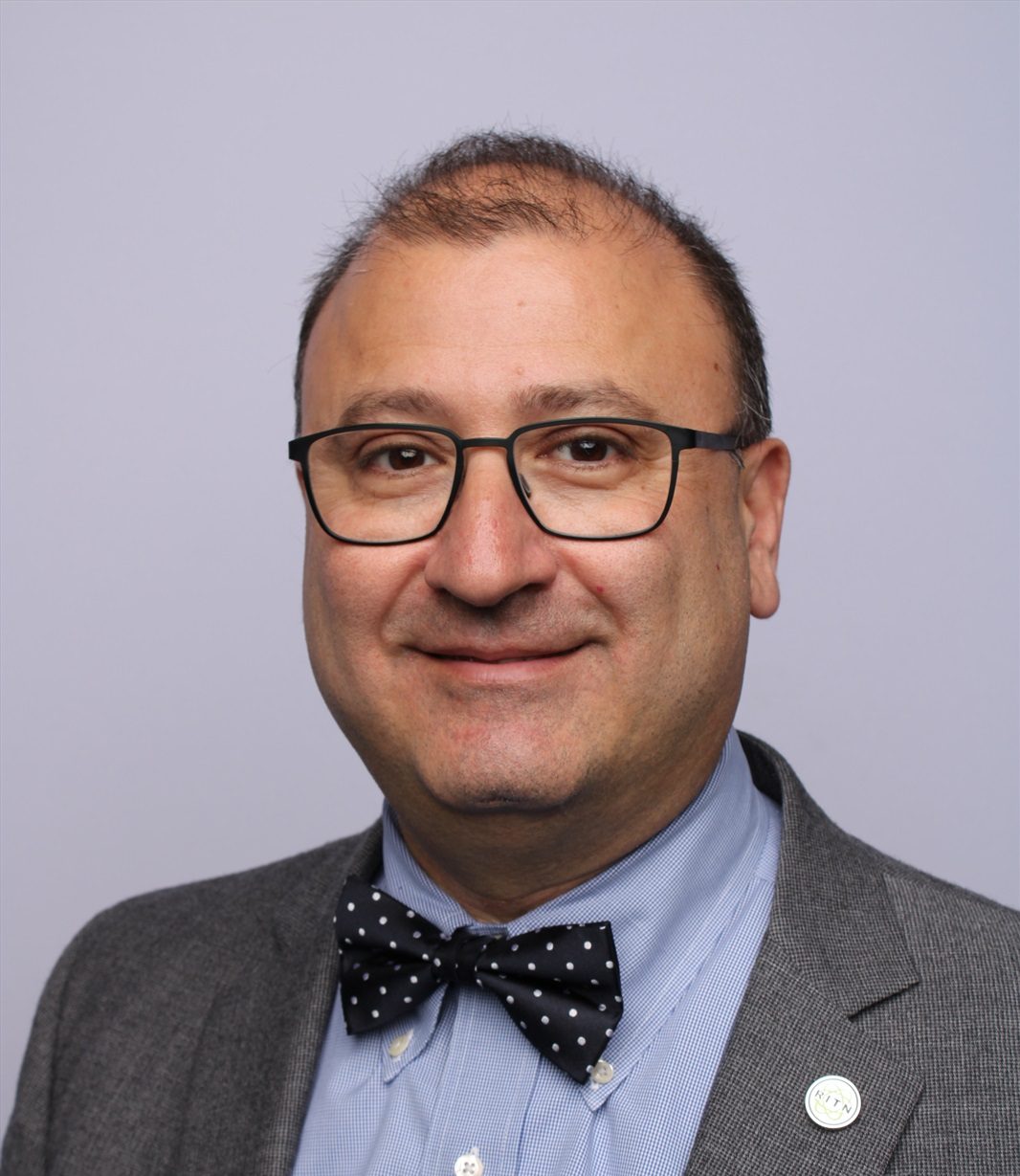
Ziad Kazzi, MD, FACMT
MTF Board MemberDr. Kazzi is a Professor at the department of Emergency Medicine and the Director of the International Medical Toxicology Fellowship Program at Emory University. He is also the Assistant Medical Director of the Georgia Poison Center and a Guest Researcher at the CDC National Center of Environmental Health. Read full bio>> -
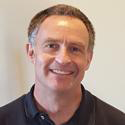
Charles McKay, MD, FACMT
MTF Board MemberDr. McKay is an Associate Clinical Professor of Emergency Medicine at the University of Connecticut School of Medicine. He is also the Associate Medical Director of the Connecticut Poison Control Center. Read full bio>> -
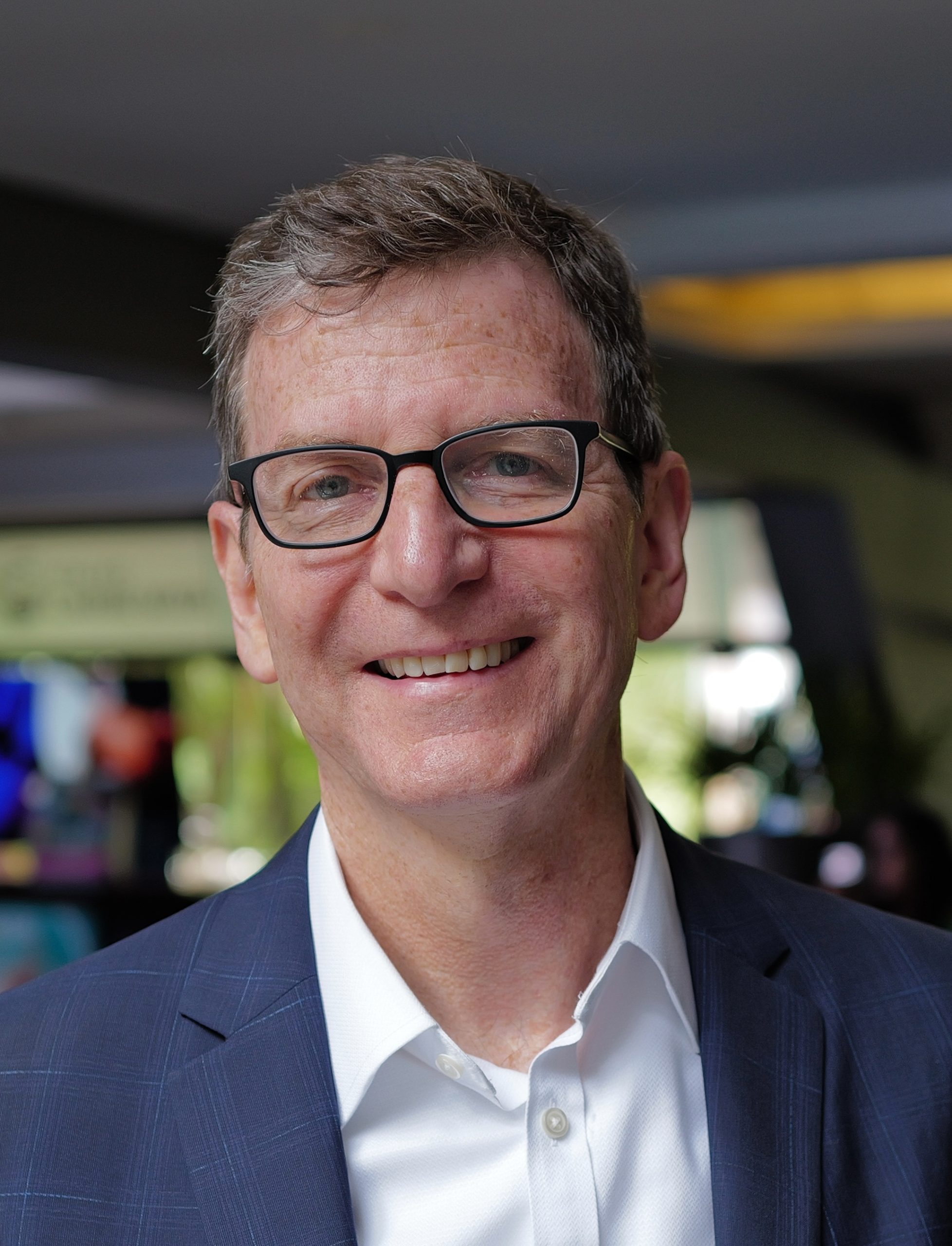
Lewis Nelson, MD, FACMT
MTF Board MemberLewis S. Nelson, MD, MBA, FACMT, is Dean and Chief of Health Affairs and Professor of Emergency Medicine and Medical Toxicology at the Charles E. Schmidt College of Medicine at Florida Atlantic University, in Boca Raton, FL. Prior to this role, he was the Chair of the Department of Emergency Medicine and Chief of the Division of Medical Toxicology and Addiction Medicine at Rutgers New Jersey Medical School, in Newark, NJ. Read full bio>> -
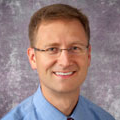
Anthony Pizon, MD, FACMT
MTF Board MemberDr. Pizon currently serves as the Chief of the Division of Medical Toxicology and as Director of the Medical Toxicology Fellowship. He is board-certified in Emergency Medicine, Medical Toxicology and Addiction Medicine. Read full bio>> -
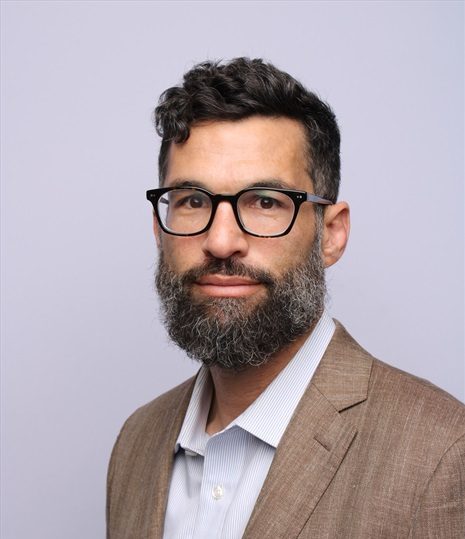
Andrew Stolbach, MD, MPH, FACMT
MTF Board MemberDr. Stolbach is Board Certified in Emergency Medicine and Medical Toxicology. He serves as a consultant to the Maryland Poison Center, is a member of the Johns Hopkins Hospital P&T Committee, and is a Johns Hopkins IRB co-Chair. Read full bio>> -
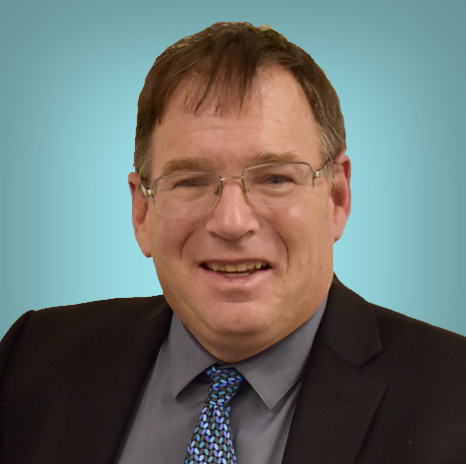
Paul Wax, MD, FACMT
MTF Board Ex-OfficioDr. Wax became ACMT's first and only Executive Director in 2008 after serving a two-year term as Board President beginning in 2006. Dr. Wax is currently Adjunct Professor in Emergency Medicine (Medical Toxicology) at UT Southwestern School of Medicine where he has been on faculty since 2006. Read full bio>>

Research Grants, Travel Awards, and Other Programs

The Medical Toxicology Foundation understands the importance of fostering innovation and supporting the development of talented professionals in the field. Through its research grants, the foundation aims to encourage and fund groundbreaking research projects that have the potential to revolutionize the field of medical toxicology. These grants provide recipients with the necessary resources to conduct in-depth studies, explore new treatment methods, and contribute to the body of knowledge in this critical area of medicine.
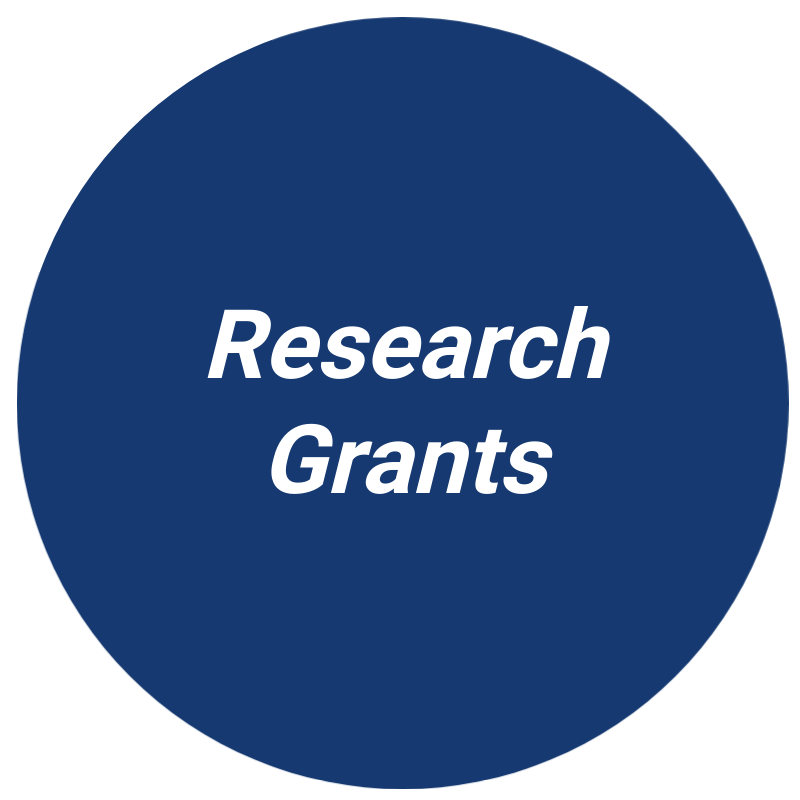
Each year the MTF provides funding opportunities for early to mid-career investigators.

2024 MTF/SAEMF Toxicology Research Grant
Simon J. Ostrowski, MD
University of Pittsburgh
Award Amount: $20,000
Funding Period: July 1, 2024 - June 30, 2025
Project: "Feasibility of Assessing Alcohol Withdrawal Syndrome with a Wearable Biosensor"
Alcohol use disorder is a highly prevalent medical condition requiring a large number of hospital admissions and health care dollars spent. Current standard of care for alcohol dependence and acute alcohol withdrawal often entails admission for frequent nursing reassessment. By demonstrating that a wearable biosensor technology is capable of identifying and evaluating the physiologic state of acute alcohol withdrawal, this project has the potential to transform the standard of care for treatment. This pilot study is meant to both assess feasibility and acceptability, while also generating pilot data that can be used to inform larger investigations of this novel technology.
Dr. Ostrowski is a first-year medical toxicology fellow at the University of Pittsburgh Medical Center (UPMC). He completed his emergency medicine residency at UPMC and medical school at University of Massachusetts Medical School. During medical school, he had the opportunity to work in Dr. Stephanie Carreiro’s lab using wearable biosensors in patients receiving opioid therapy and with opioid dependence, which ultimately served as inspiration for him to consider their use in other substance use disorders, namely alcohol withdrawal syndrome. Outside of medicine, Dr. Ostrowski enjoys spending time with his incredible wife, Estelle, his daughter, Edith, and his dog, Millie.
We caught up with Dr. Ostrowski for an update on the project and to discuss how recieving this funding has impacted him. Read more in the "Impact Stories" section of this report.
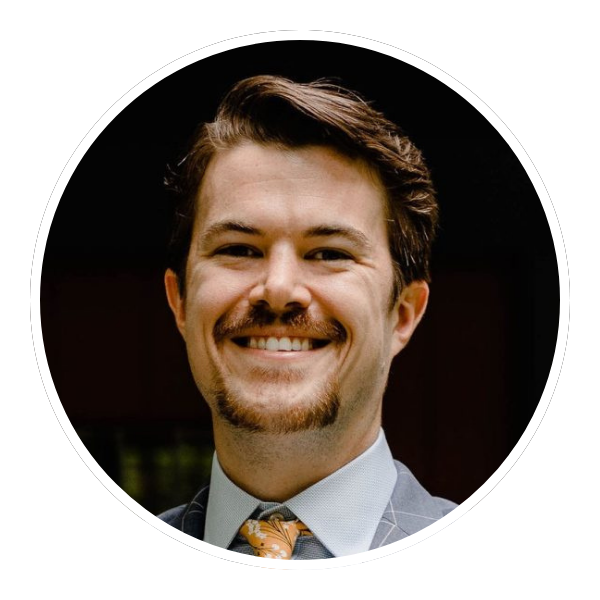
2024 MTF Shark Tank Research Forum
Forrest Mahony, MD
University of Massachusetts Chan Medical School
Award Amount: $20,000
Funding Period: July 1, 2024 - June 30, 2025
Project: "Detecting Harmful Algal Blooms (HABs) in New England Sea Turtles"
This research study proposes to evaluate New England sea turtle plasma samples from various turtle species (including Kemp’s Ridley, Loggerhead Turtles, and Green Turtles), collected over the last 10 years through the New England Aquarium’s (NEAq) Animal Rescue program, to describe patterns of harmful algal bloom (HAB) exposure. It represents the first pilot study looking at HAB exposure among the stranded New England sea turtle population. Leveraging marine animal surrogates to predict and monitor human risk of poisoning is an underexplored area for our specialty. This project will establish a unique collaboration between the medical toxicology community and one of the largest research aquariums in the US.
Dr. Mahony is a first-year medical toxicology fellow at UMass Chan Medical School and an Emergency Medicine physician. As the PI, Dr. Mahony will oversee all elements of study execution, data acquisition, data interpretation, preparation of publications, and identifying/removing any obstacles to study completion. He has assembled a multidisciplinary team of mentors and collaborators with expertise in medical toxicology, environmental toxicology, laboratory analysis, aquatic veterinary medicine, and clinical research.
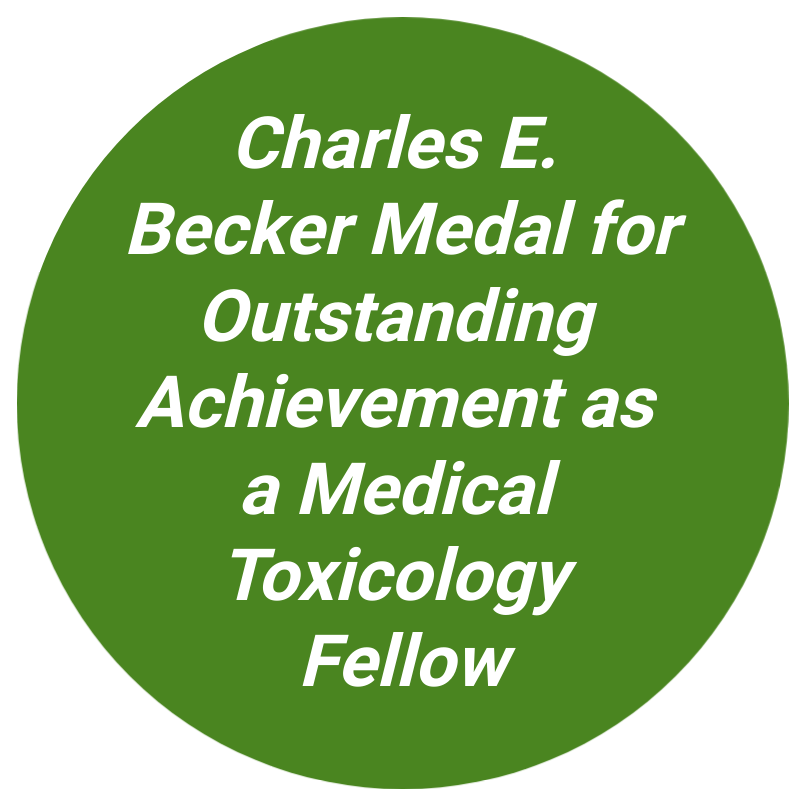
The Charles E. Becker Medal for Outstanding Achievement as a Medical Toxicology Fellow was established with the generous support of Dr. Charles Becker, a pioneering leader in establishing the specialty of medical toxicology. In a career spanning more than four decades, Dr. Becker’s contribution to scholarship, research, public health promotion, and professional medical education in medical toxicology have earned him international recognition and respect.
This award aims to recognize an outstanding fellow who embodies the humanitarian spirit of Dr. Becker and whose professional goals include a desire to make a significant contribution to advance the field of medical toxicology.
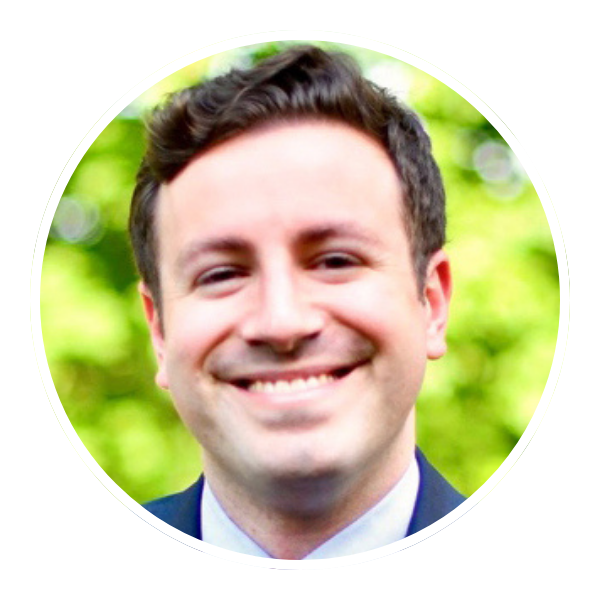
The MTF was pleased to select Dr. Powell Graham as the 2024 recipient of the Charles E. Becker Medal for Outstanding Achievement as a Medical Toxicology Fellow. Dr. Graham is an emergency medicine physician and medical toxicology fellow. He previously served as chief resident UMass and has published on multiple topics including ultrasound and prostate cancer. His current research interests lie in cannabinoids, particularly pediatric exposures.
Dr. Graham was presented with the Becker Medal by ACMT Past President, Dr. Michael Kosnett during a ceremony at the 2024 ACMT Annual Scientific Meeting in Washington, DC.
Dr. Graham has also participated in other MTF initiatives including the Med Tox in Industry Rotation January of 2022 cohort, received an MTF Innovative Teaching and Research Grant in 2021. We caught up with Dr. Graham for an update on how his interaction with MTF opportunities has impacted him. Read more in the "Impact Stories" section of this report.
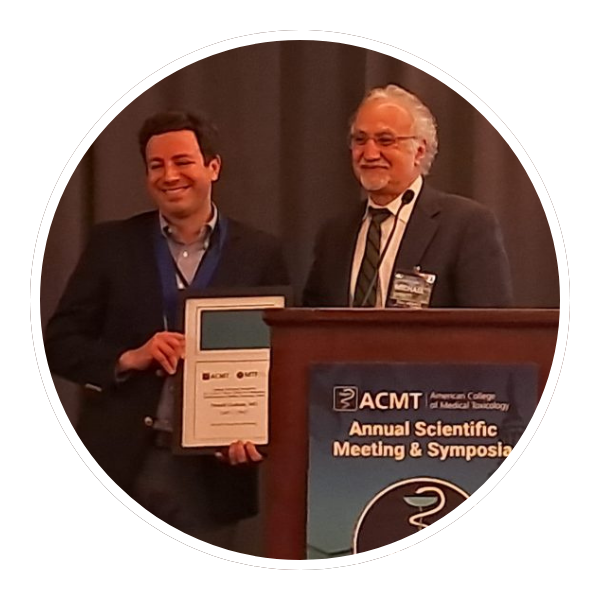

The MTF offers several conference travel awards for medical students and residents to offset cost to attend ACMT's Annual Scientific Meeting (ASM). Attending these conferences provides opportunities to network with experts in the field, and recipients gain exposure to the latest advancements, emerging trends, and best practices in medical toxicology to encourage them to pursue medical toxicology fellowship training.
2024 J&J Consumer Health Travel Awardees
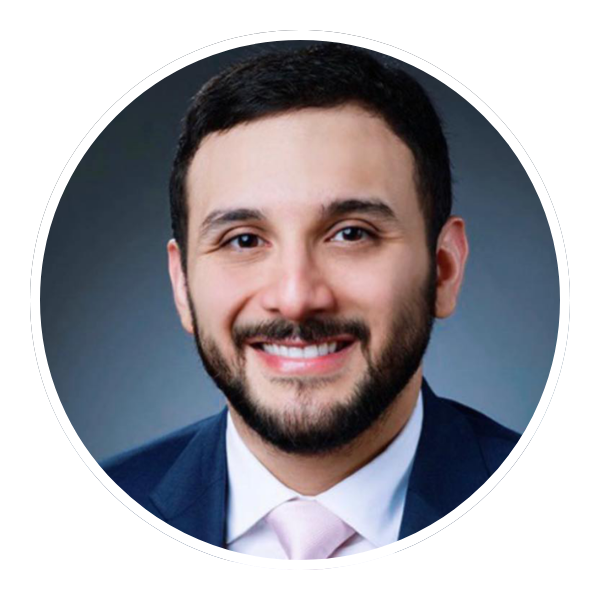
Mounir Contreas Cejin, MD
Resident, University of Texas Southwestern

Annie Hoang, MD
Resident, University of California, Los Angeles
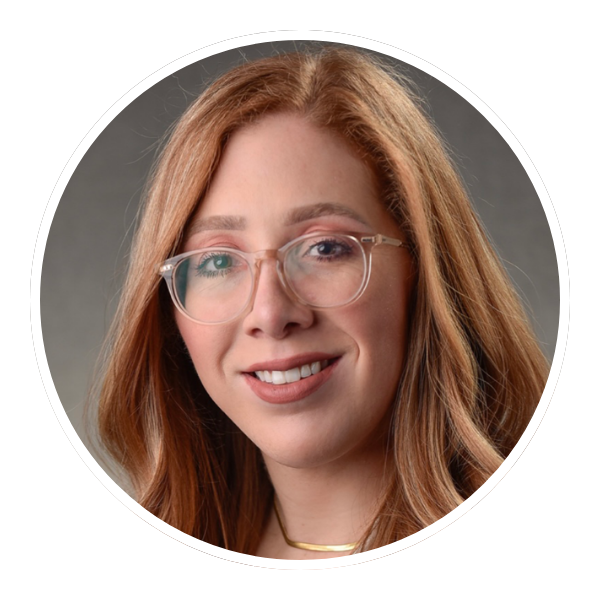
Jennifer Thompson, MD
Resident, University of New Mexico Hospital
Dr. Michael Shannon
Travel Awardee
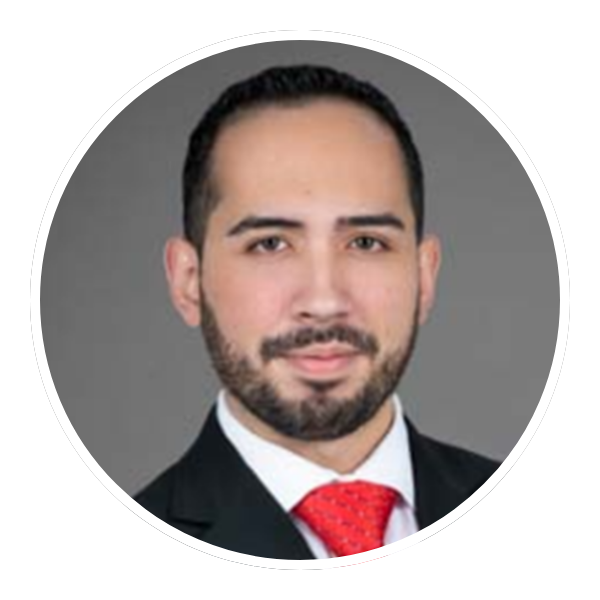
Hector Barreto-Vazquez, MD
Resident, Baylor College of Medicine
Dr. Michael Spadafora
Travel Awardee
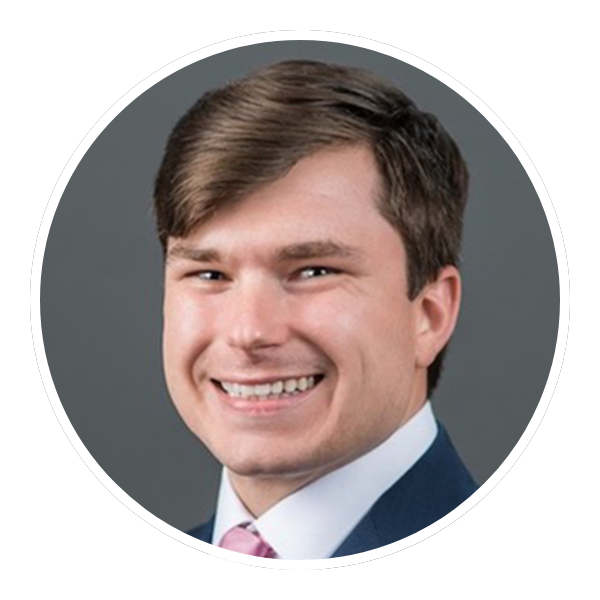
Alexander Teshon, MD
Resident, HCA Healthcare Houston Kingwood
MTF International Abstract
Travel Awardee
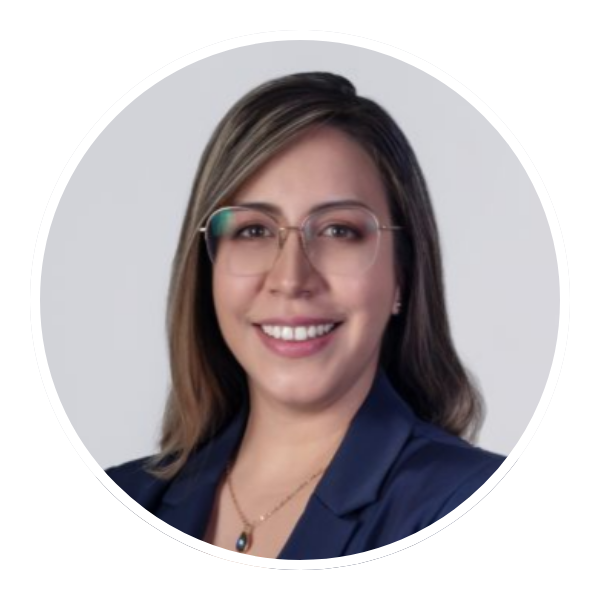
Dania Mariel Félix Bernstorff, MD
Centro Toxicológico Hospital Ángeles Lomas, Mexico
MTF Student & Resident Abstract Travel Awardees
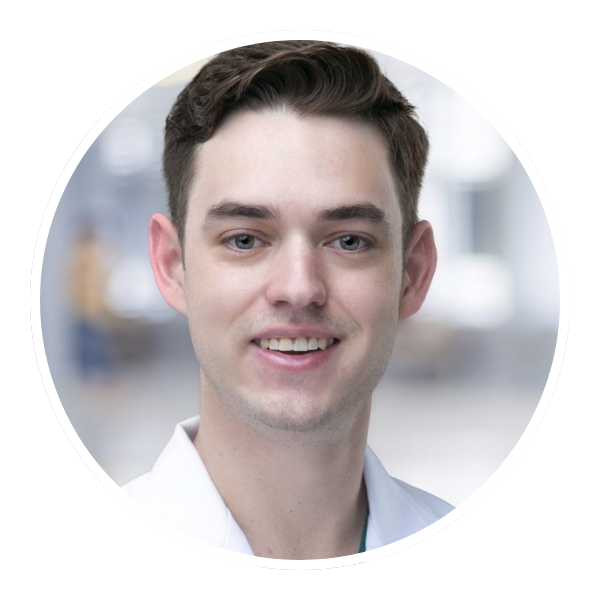
Austin Gay, MD
Resident
UT Health San Antonio
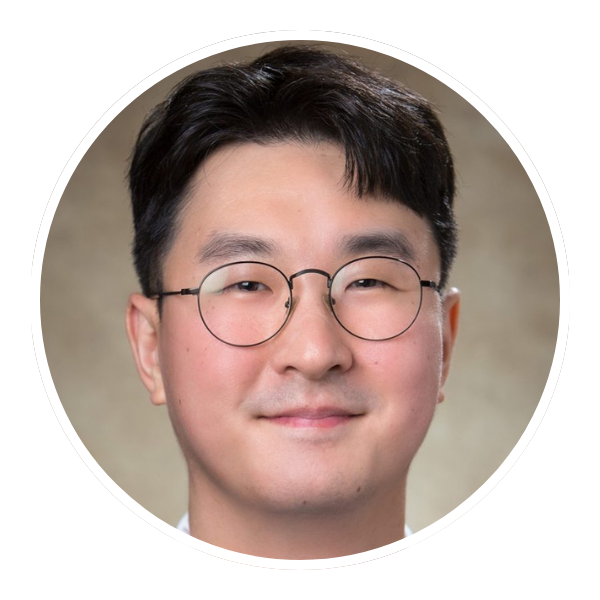
Wonjun Billy Kim
Student
Mercer School of Medicine
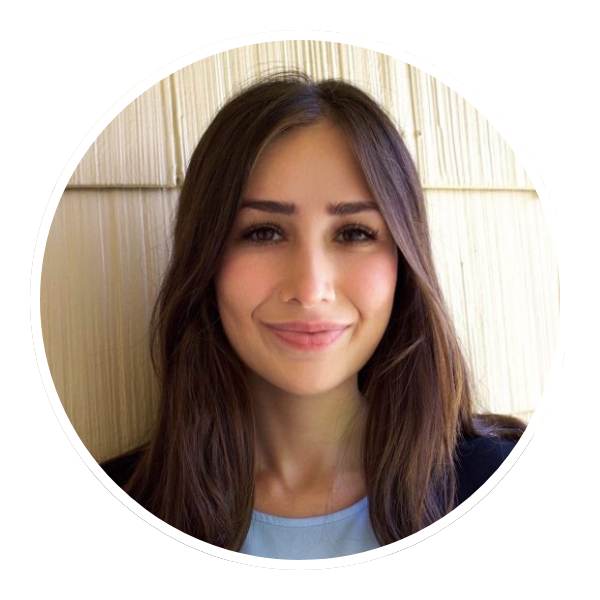
Mana Sheykhsoltan
Student
Georgetown University
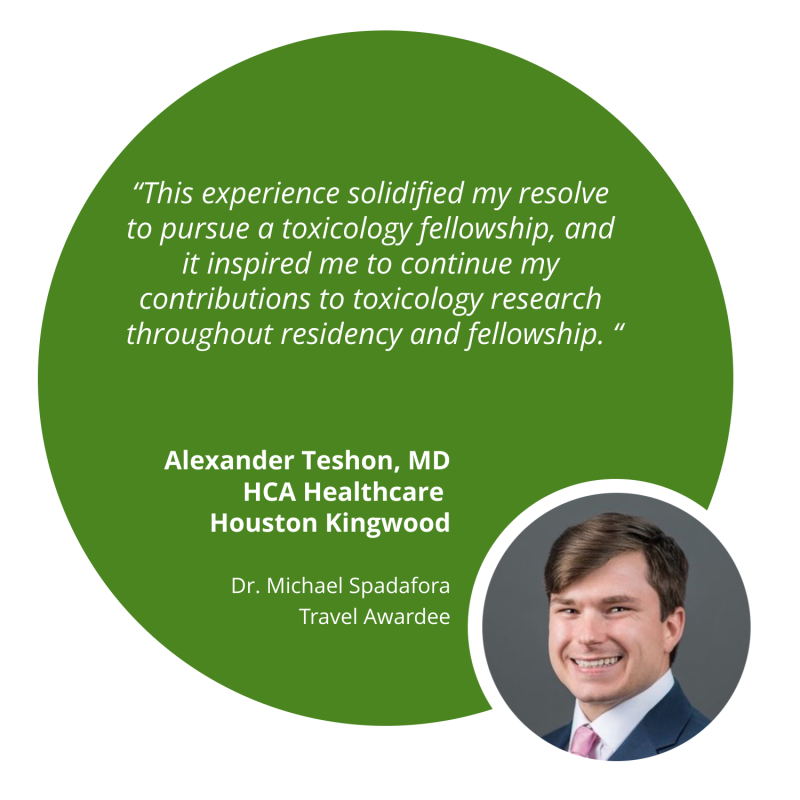

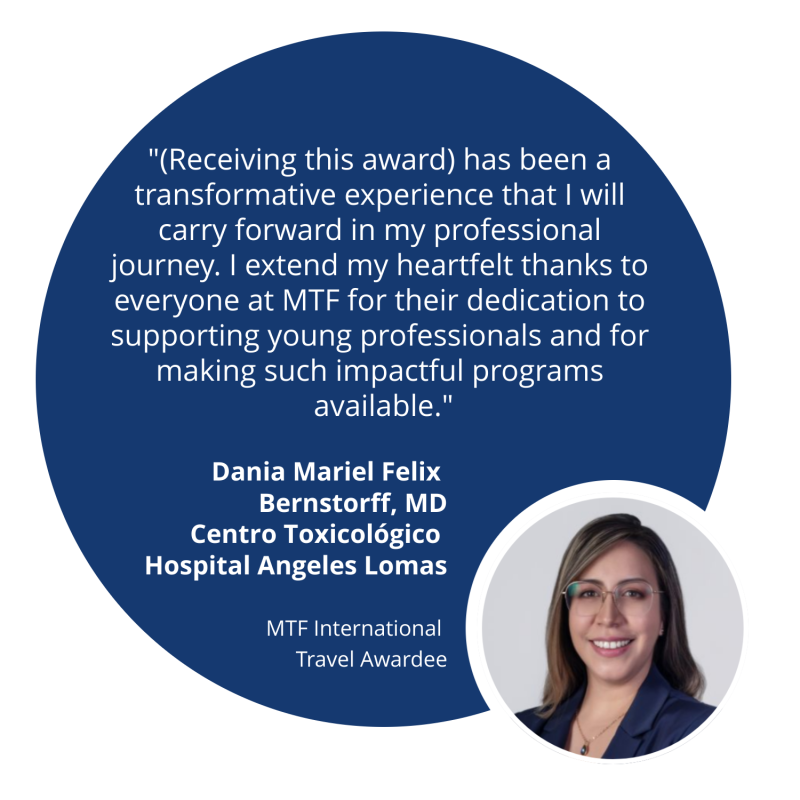
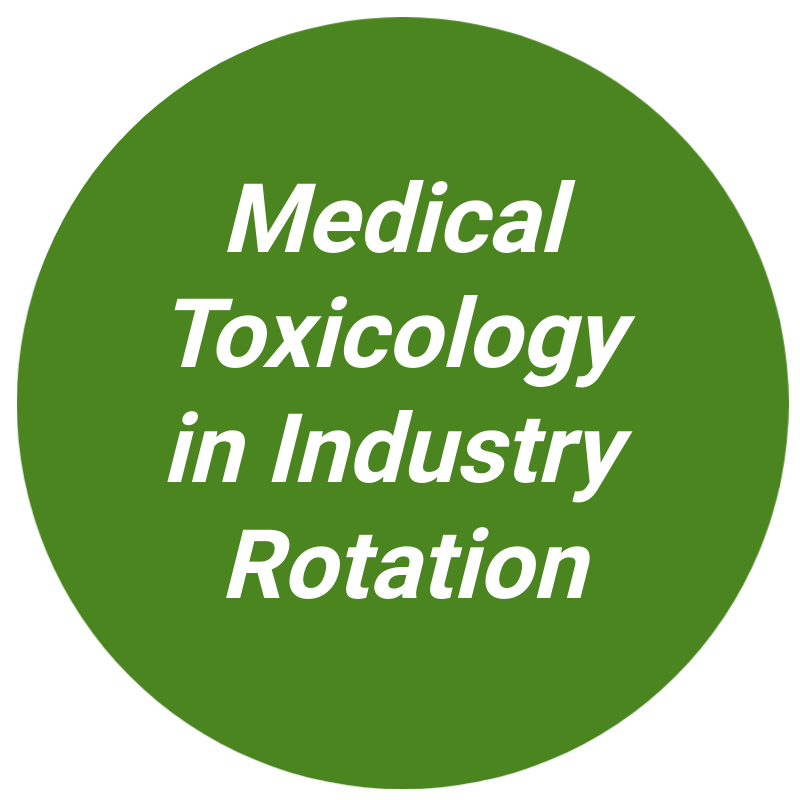
The focus of this program is to create opportunities for fellows to experience another facet of medical toxicology during their fellowship and introduce them to the possibility of a career in industry. The goal is to teach the principles of product development from the R&D pipeline, through the regulatory process, to launch and post-market stewardship. The rotation will address the gap in understanding the role of industry and the regulatory oversight of bringing important technology from the academic arena to the public sphere.
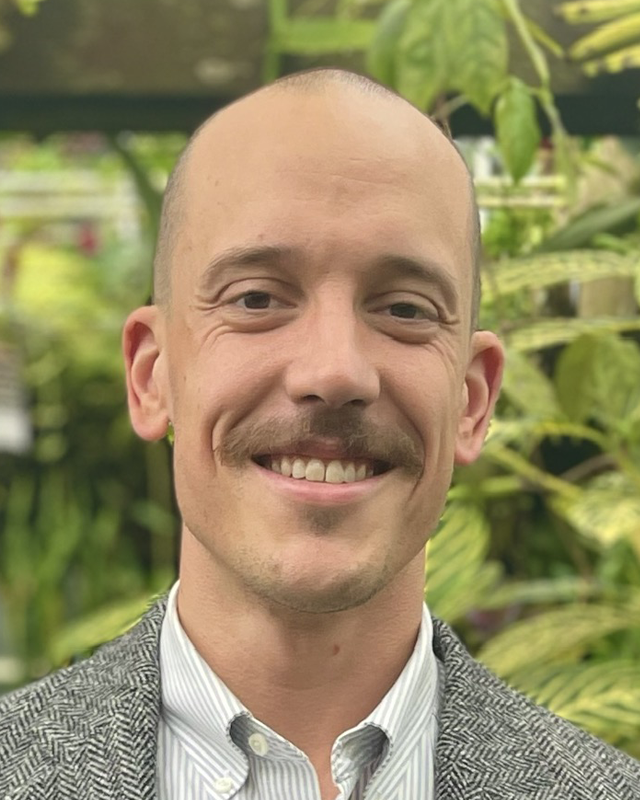
Axel Adams, MD
Toxikon Consortium, Chicago, IL
Dr Axel Adams grew up in rural Wisconsin and attended the University of Wisconsin where he studied potato genetics and molecular biology. He then attended the University of California - San Francisco for medical school while doing a masters at the University of California-Berkeley School of Public Health with a focus in clinical toxicology. During this time, his research was primarily regarding new psychoactive substance surveillance and biomonitoring and mass spectrometry method development. He completed emergency medicine residency at the University of Washington, and is currently a first year fellow at the Toxikon Consortium in Chicago. His interests include drug discovery from natural products, mass spectrometry, occupational toxicology of the semiconductor industry, bioremediation, botany, and lichenology.
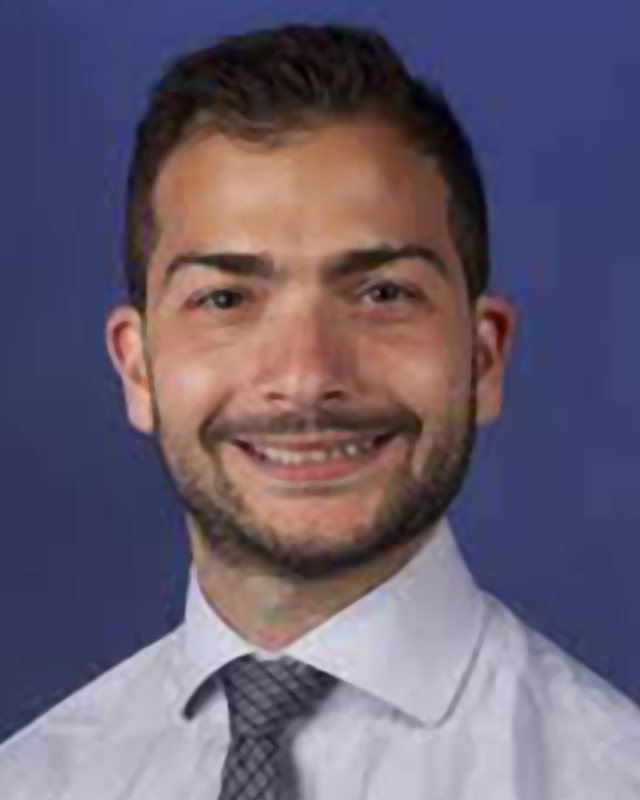
Trevor Cerbini, MD
Rutgers New Jersey Medical School, Newark, NJ
Dr. Trevor Cerbini completed his Emergency Medicine residency at Kings County Hospital center and University Hospital Brooklyn. He attended medical school at SUNY Downstate College of Medicine. His first exposure to toxicology was a medical toxicology elective as an MS4. His interests include adverse drug reactions and patient safety, tox history, and addiction medicine. Mithridates VI is his personal hero. In his spare time Trevor enjoys watching movies, entertaining his 2-year-old, playing with his dog, and trying to get his cat to stop hissing at him when he is disrobed.
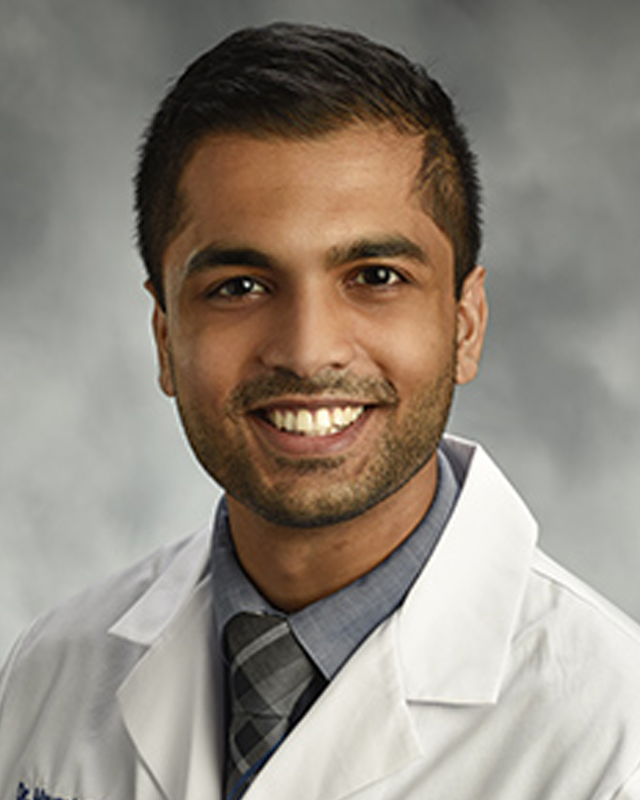
Mayank Gupta, MD
Emory University School of Medicine, Atlanta, GA
Dr. Mayank Gupta completed his bachelor's degree in industrial operations engineering at University of Michigan and went on to medical school at Michigan State University College of Human Medicine. He completed his emergency medicine residency at Beaumont Hospital - Royal Oak and is currently in the medical toxicology fellowship at Emory University. He has worked on various process improvement projects and is interested in further developing his operations management skills during the Medical Toxicology in Industry program. His interests include process improvement, medical education, patient safety, and addiction medicine.
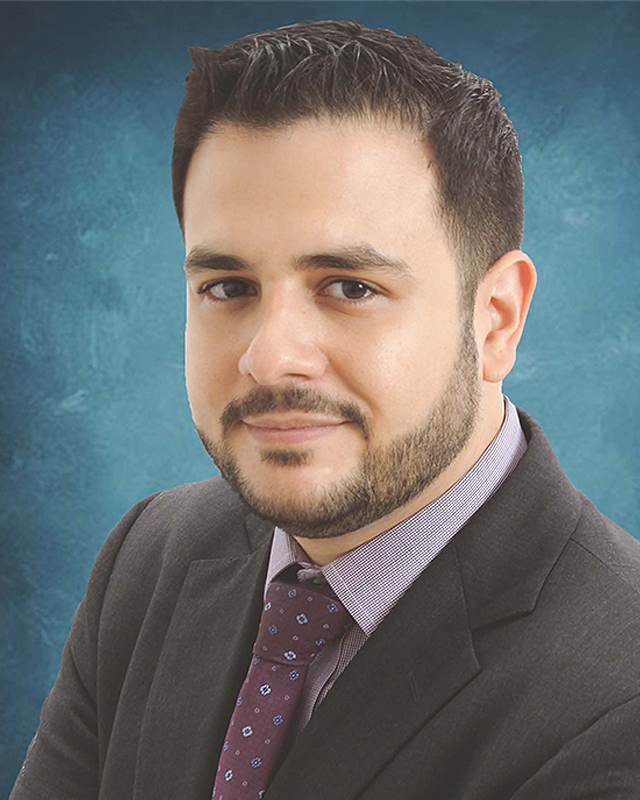
Mohamed Jefri, MD
Cambridge Health Alliance, Boston, MA
Dr. Mohamed Jefri was born in State College, Pennsylvania, and raised in Jeddah, Saudi Arabia. He decided to travel for college and while completing a Bachelor’s degree in Neuroscience and Physiology at Flinders University in South Australia, he enjoyed working in the lab and got his first test of research. After graduating, he returned to his home country and completed medical school at King Saud bin Abdulaziz University for Health Sciences. He then spent a year at Kennedy Krieger Institute working on research after which he was accepted in residency at Central Michigan University. He was interested in Medical Toxicology during residency and was accepted at Rutgers NJMS where he completed his fellowship. Dr. Jefri’s interests included research, pharmaceutical R&D, medical affairs and clinical research.
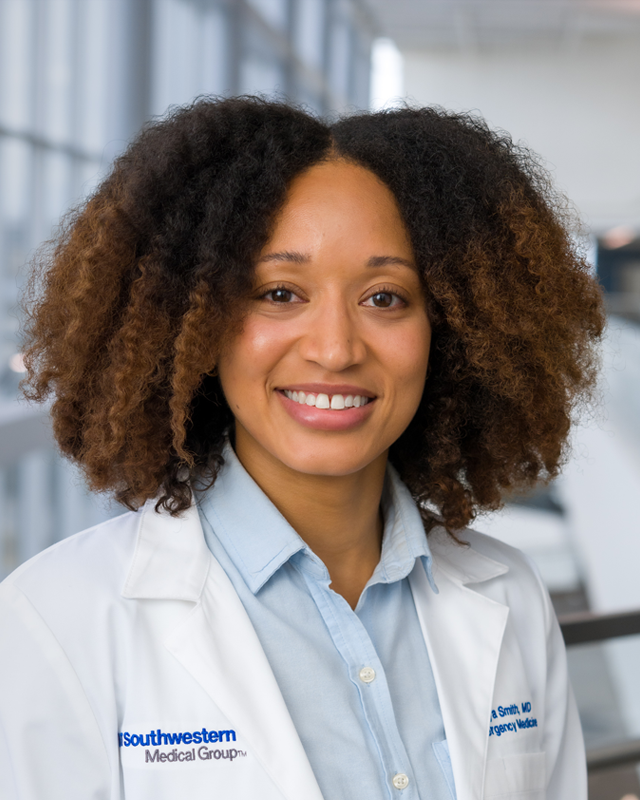
Miya Smith, MD
UT Southwestern Medical School, Dallas, TX
Dr. Miya Smith was born and raised in Kansas City, Missouri. She attended undergrad at Vanderbilt University in Nashville, Tennessee, where she majored in Russian as well as Cognitive Disorders and Human Behavior. She remained in Nashville to attend medical school at Meharry Medical College. She completed Emergency Medicine residency at the University of Chicago, where she was also a chief resident. It was in residency, through her work with interpersonal violence and human trafficking, that she discovered an interest in Toxicology as an important part of forensic medicine. She further explored her interest in Toxicology and is currently in fellowship at UT Southwestern in Dallas, Texas. Her interests include forensic toxicology, addiction medicine, and unconventional applications of and non-clinical pathways in toxicology.
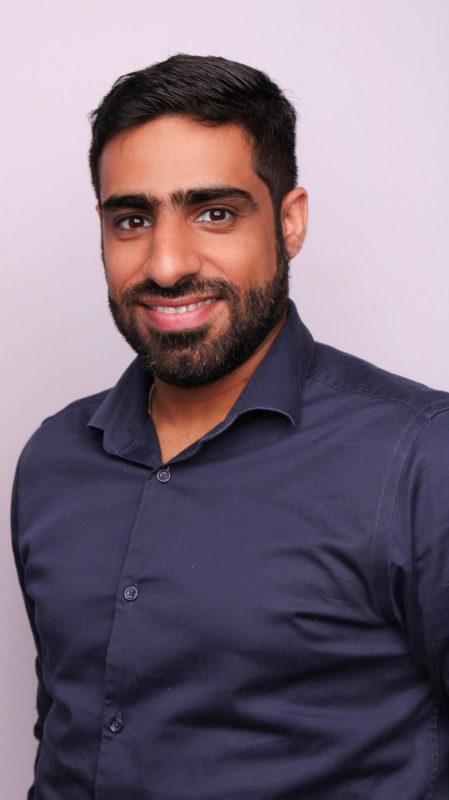
Al Yaqdhan Al Atbi, MD
Emory University, Atlanta, GA
Al Yaqdhan Al Atbi, MD is an experienced emergency medicine physician who has been serving at the Royal Oman Police Hospital since 2014. He earned his Emergency Medicine Board from the Oman Medical Specialty Board in 2020. Currently, Dr. Al Atbi is a medical toxicology fellow at Emory University in the United States (2023-2025).
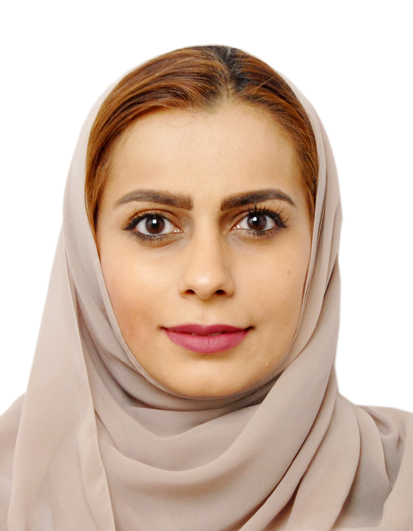
Duaa Al Lawati, MD
Emory University, Atlanta, GA
Duaa Al Lawati, MD was born and raised in Muscat, Sultanate of Oman. She completed her basic science and medical degree at Arabian Gulf University in the Kingdom of Bahrain and is board-certified in emergency medicine by the Oman Medical Specialty Board. Currently, Dr. Al Lawati is working in one of the busiest tertiary care hospitals in Oman and pursuing a medical toxicology fellowship at Emory University in Atlanta, Georgia. She is also working on projects focused on enhancing operations at the Oman Poison Center. Her professional interests lie more in occupational and environmental toxicology.
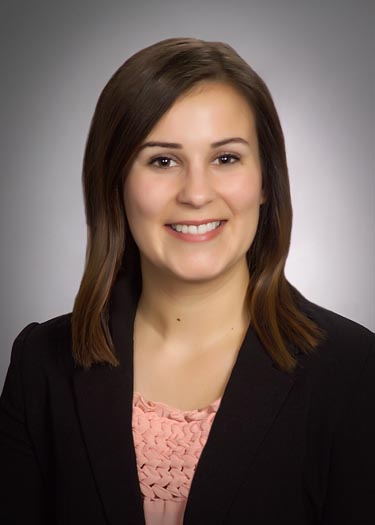
Kayla Kendric, MD
University of California, San Francisco
Kayla Kendric, MD, a San Diego native, began her academic journey with a focus on biology and chemistry at Point Loma Nazarene University. She pursued her medical degree at Creighton University, studying across both Omaha and Phoenix campuses, before returning to California for her emergency medicine residency at Loma Linda University. Following her residency, Dr. Kendric worked as an attending emergency medicine physician in various community hospitals in the Bay Area for three years. During this time, her interest in medical toxicology grew, inspiring her to pursue a medical toxicology fellowship position which she now holds at the University of California, San Francisco. Her professional interests span drug development and safety, forensic toxicology, and addiction medicine.
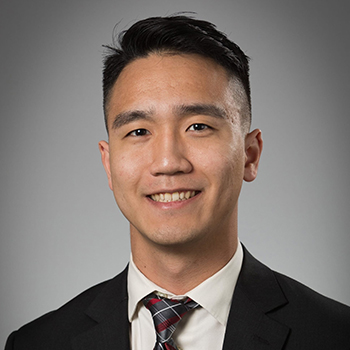
Kim-Long Nguyen, MD, MBA
Washington University School of Medicine, Saint Louis, MO
Kim-Long Nguyen, MD was born in California but grew up in a suburb of Dallas, Texas. He had attended the University of Texas at Austin for his undergraduate studies majoring in both biochemistry and chemistry. He attended the Texas Tech University Health Sciences Center School of Medicine for his medical education, during which he had obtained an additional masters of business administration at the Rawls College of Business. He finally made it out of Texas and completed his emergency medicine residency training at Barnes-Jewish Hospital in St. Louis prior to starting Toxicology fellowship at Washington University. Outside of work, he enjoys food experiences and breweries and the occasional surprised look when someone witnesses the volume of food he regularly eats in a sitting (even he doesn’t know where it all goes).
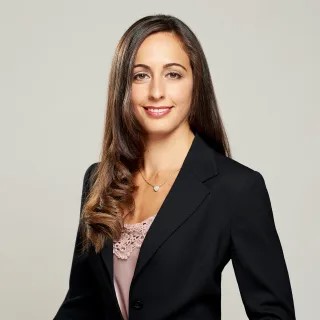
Cassondra Paletta, MD
Schulich School of Medicine, Western University, Ontario, Canada
Cassondra Paletta MD, was born in Hamilton Ontario Canada. She obtained a bachelors in science from Texas A&M University- Commerce where she majored in biology, followed by medical school at Saba University School of Medicine. She moved to Providence RI and completed her residency in internal medicine at a Boston University affiliated program at Roger Williams Medical Center. Following her training in the US, she moved back to her home country of Canada to pursue fellowship in clinical pharmacology and toxicology at the Schulich School of Medicine at Western University in London Ontario, Canada. She is currently a second year fellow in the program. Her toxicology interests include drug-drug interactions, complex therapeutic regimens, drug R&D and pharmacogenomics. Outside of medicine, Dr. Paletta’s hobbies include fitness, running, hiking and skiing.
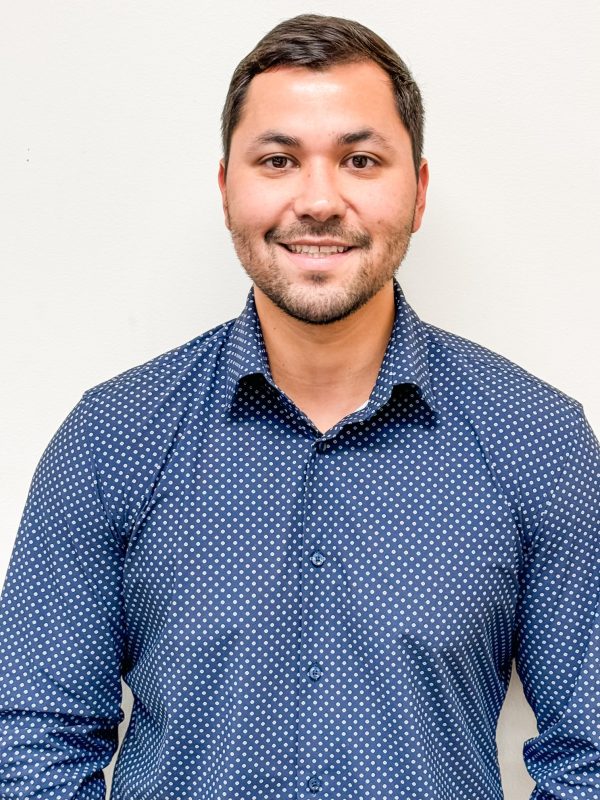
Fermin Suarez, MD
Rocky Mountain Poison and Drug Safety, Denver, CO
Fermin Suarez, MD was born in Chicago but grew up in West Valley City, about 30 minutes away from Salt Lake City. He attended the University of Utah where he majored in biology and minored in chemistry, followed by medical school at Temple University in Philadelphia. After graduating from Temple, he completed his emergency medicine residency at Denver Health. He was able to stay in Denver after completing residency where he is currently a second-year medical toxicology fellow at the Rocky Mountain Poison and Drug Safety Center. Current toxicology interests include performance enhancing drugs, drug testing for athletics, drug research and development and post marketing surveillance. Outside of medicine, Dr. Suarez enjoy spending time with his wife, daughter and dog, board games, video games, soccer, weightlifting, and stereotypical Colorado activities like skiing, snowboarding, and downhill mountain biking.
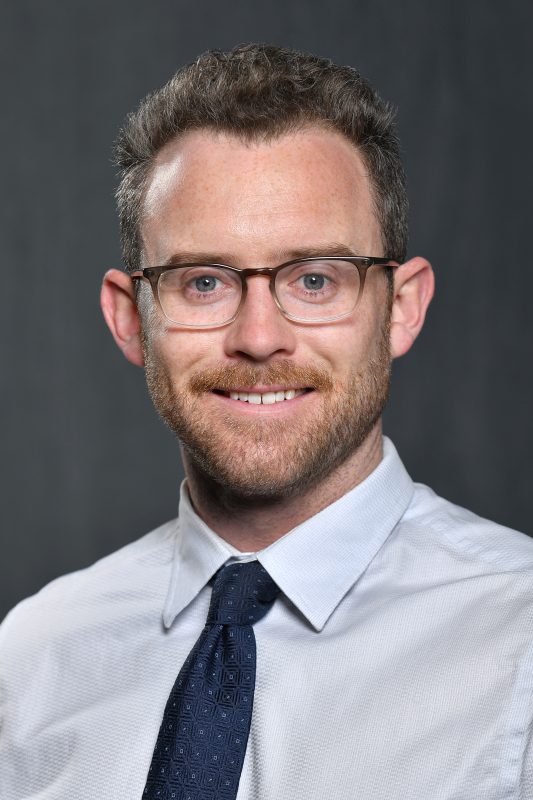
David Toomey, MD
University of Rochester, Rochester, NY
David Toomey, MD was born and raised in the greater Boston area, and completed his Bachelors of Science in Molecular Genetics at the University of Rochester in Western NY. He returned to Massachusetts for medical school at University of Massachusetts, and completed residency through the Harvard Affiliated Emergency Medicine Residency Program at Massachusetts General Hospital and Brigham and Women’s Hospital in Boston. David previously worked as Emergency Medicine faculty at the University of Rochester, and is currently the inaugural fellow in Medical Toxicology at the same institution. His interests include safety in drug development, advanced resuscitation for severely poisoned patients, and fungal horticulture.
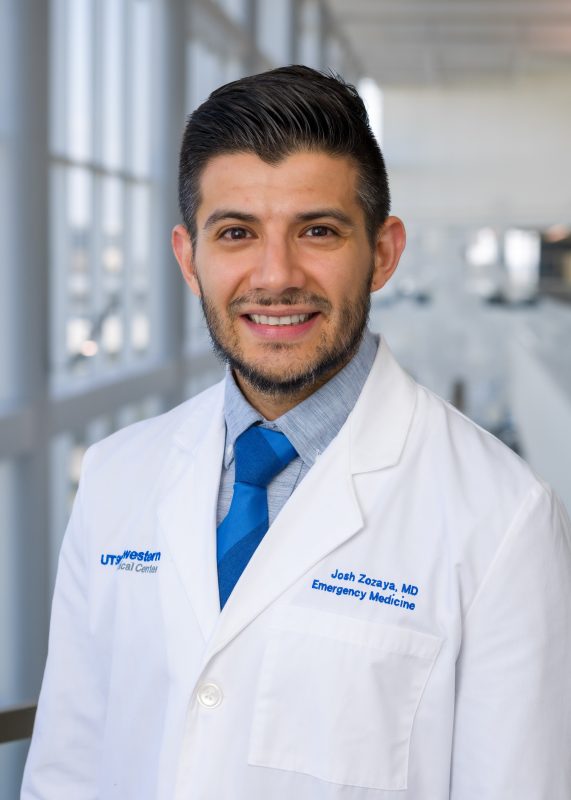
Josue Zozaya, MD
University of Texas Southwestern, Dallas, TX
Dr. Josue (Josh) Zozaya was born in Brownsville, at the southern tip of Texas. He completed his bachelor’s degree in biological sciences at the University of California Riverside. He had post graduate training at the Keck Graduate Institute, where he focused on drug discovery and development on biological toxins including those responsible for causing anthrax and botulism. He then returned to the University of California Riverside where he attended medical school. He completed residency training in Emergency Medicine at the University of Texas Southwestern, where he currently works as a Toxicology fellow. His first exposure to toxicology was out in the ranchos of Mexico where he grew up studying, as well as getting stung by, venomous creatures. Dr. Zozaya’s interests in toxicology include animal/plant toxins, pharmacogenomics, cardiac toxins, and forensic toxicology.
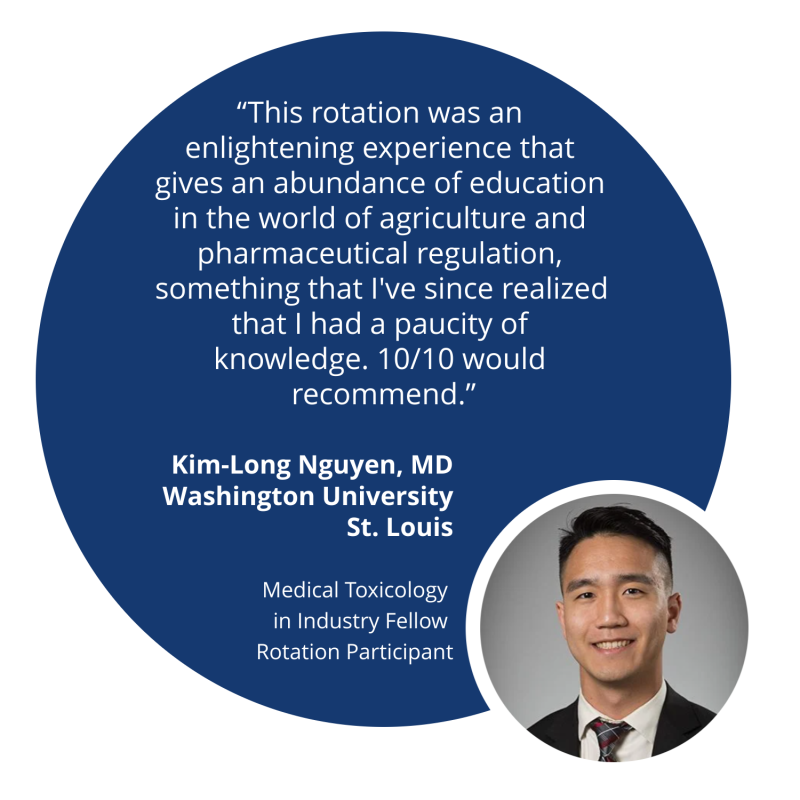


Your Gifts at Work: Impact Stories

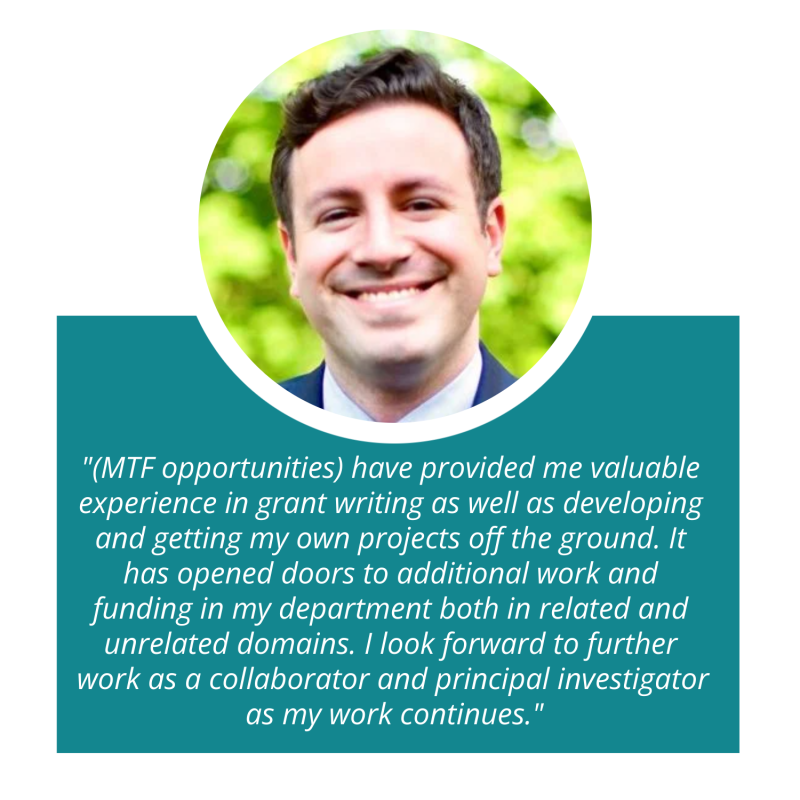
Powell Graham, MD
MTF Innovative Teaching and Research Grant (2021), MTF/Bayer Medical Toxicology in Industry Fellows Rotation Program (2022), MTF Dr. Charles E. Becker Medal for Outstanding Achievement as a Medical Toxicology Fellow
Dr. Graham is an emergency medicine physician, and medical toxicology fellow. He previously served as chief resident UMass and was a residency representative for MACEP. He has published on multiple topics including ultrasound and prostate cancer. His current research interests lie in cannabinoids, particularly pediatric exposures.
You were the 2021 recipient of the Innovative Teaching & Research Grant. Any updates on your project, “CannFall: Evaluating Blood Biomarkers of Cannabis Use After Geriatric Falls?”
We are thrilled to share that we were able to present an abstract with some of our promising results during the 2023 ACMT conference. Currently, we are eagerly awaiting the statistical analysis and working on further chart review that will pave the way for at least one publication. Our aim is to complete this publication by the end of 2025 and submit it to a journal at that time.
Did you learn anything memorable or unexpected during the grant cycle?
It was a valuable experience essential to my career development as a toxicologist and researcher. Beginning with writing a grant application that in every way resembles those that I will write in the future, it was an excellent primer. I had yet to anticipate the complexity of grants administration within our (and I expect other) institutions. Learning about this process was fascinating and important for future funded work.
You've also participated in the Medical Toxicology in Industry Fellows Rotation. What were some key takeaways from that unique experience?
I loved the rotation. It was great to meet a toxicologist outside of my institution who had a very different career path than those I have learned from. It was wonderful also to meet such an incredible and diverse set of scientists who are genuinely passionate about their work and believe in the good it is doing for the world. Additionally, it greatly enhanced my understanding of regulatory sciences and what safety and environmental testing goes into the development of GMOs, pesticides, and herbicides. I had yet to anticipate the international nature of this rotation and the understanding it gave me as to how regulation looks different in Europe, Brazil, and East Asia. Beyond this, it was great to dive deeper into generic medications and their regulations, as well as drug development and the associated regulatory work and research that goes into their acceptance by the FDA. Overall it was a fantastic experience that I continue to encourage our fellows to be involved with.
How has the MTF helped with your professional growth and development?
It gave me a valuable experience in grant writing as well as developing and getting my own project off the ground. It has opened some doors to additional work and funding in my department both in related and unrelated domains. I look forward to further work as a collaborator and principal investigator as my work continues.
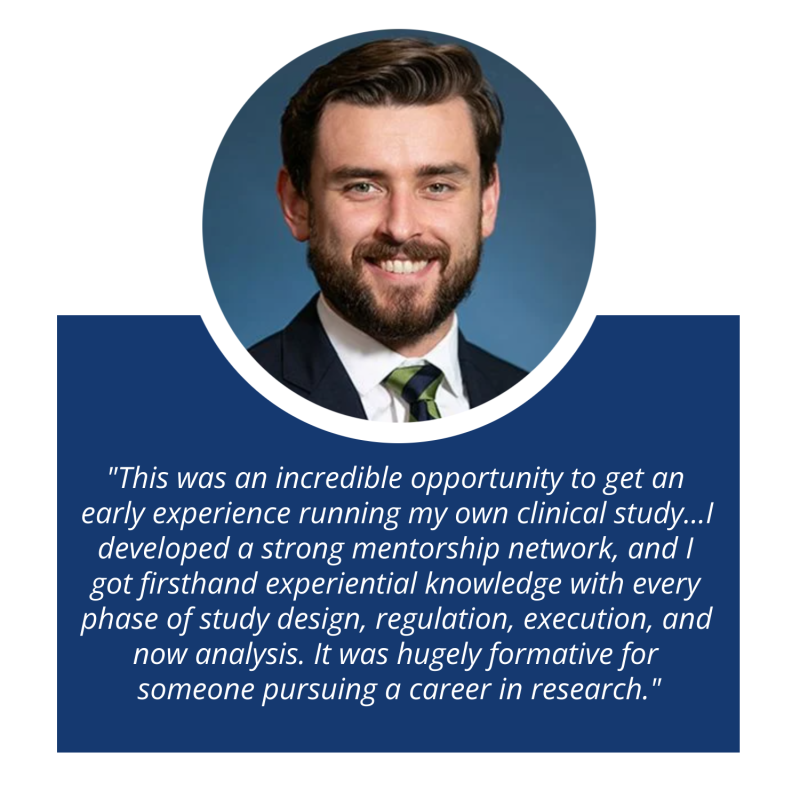
Simon Ostrowski, MD
2024 MTF/SAEMF Toxicology Grant
Project: "Feasibility of Assessing Alcohol Withdrawal Syndrome with a Wearable Biosensor"
Dr. Simon Ostrowski graduated from the University of Massachusetts Medical School. He completed a residency in emergency medicine at the University of Pittsburgh where he served as chief resident and received the resident award for research. Dr. Ostrowski stayed at University of Pittsburgh to complete a fellowship in medical toxicology during which he received his MTF/SAEMF grant to perform a pilot study investigating the use of a wrist-worn wearable sensor to monitor alcohol withdrawal in hospitalized patients. Upon completion of his fellowship, Dr. Ostrowski plans to take a faculty position at the University of Massachusetts Medical School where he hopes to build on the work supported by his MTF/SAEMF grant to improve care delivered to patients experiencing alcohol withdrawal. Outside of work, Dr. Ostrowski enjoys spending time with his wife, two daughters, and corgi.
Q: You were the 2024 recipient of the MTF/SAEMF Toxicology Research Grant. What updates can you share on your project, “Feasibility of Assessing Alcohol Withdrawal Syndrome with a Wearable Biosensor?”
A: My project recently completed its participant enrollment phase on April 1st. We successfully enrolled and collected continuous wearable sensor data from fourteen patients. With the help of a project mentor, I have identified a computer science collaborator with whom I am working to perform deeper analysis of the wearable data including comparing it to our bedside clinical data such as bedside alcohol withdrawal severity scores.
Q: Was there anything memorable or unexpected that you learned during the grant process and project?
A: My most important learning point was a much greater appreciation for all of the logistical concerns inherent to performing a research study that enrolls human participants and involves a wearable device. I adjusted my budget items halfway through the study to dedicate time to a research assistant for whom I had not initially budgeted money during the initial conception of the project. This has greatly informed how I think about the anticipated challenges and resources required to undertake a clinical study going forward.
Q: How important was this opportunity and what impact has it had on your work and any other research endeavors you have pursued?
A: This was an incredible opportunity to get an early experience running my own clinical study. As stated above, I developed a much greater appreciation for many of the challenges inherent to research. I developed a strong mentorship network, and I got firsthand experiential knowledge with every phase of study design, regulation, execution, and now analysis. It was hugely formative for someone pursuing a career in research.
4. Do you have any advice for potential applicants or future awardees?
A: Seek mentorship early ideally from researchers with a shared vision and experience in your planned field of research. Don't underestimate the value of your own time and how you can automate or outsource tasks that do not require firsthand touch by the PI. Lastly, be mindful of your long-term career goals and how your planned study fits your overall career narrative, how it will bring you closer to your goals, and how you build on the study depending on its outcome.

You can Contribute to Building a Strong
and Sustainable Future for Medical Toxicology
Thank You, Donors!
MTF gratefully acknowledges the support of the following donors who have given a contribution to the Foundation in 2024.
President's Circle, Benefactor
$5000 and above
Carol R. Angle, MD
Marsha Ford, MD, FACMT
Bryan Judge, MD, FACMT
Ziad Kazzi, MD, FACMT
Erica Liebelt, MD, FACMT
Lewis and Laura Nelson
President's Circle, Platinum
$2,500 - $4,999
Maryann Amirshahi, PharmD, MD, MPH, FACMT
Keith Burkhart, MD, FACMT
Louise Kao, MD, FACMT
Charles McKay, MD, FACMT
Anthony Pizon, MD, FACMT
Paul Wax, MD, FACMT
Tim Wiegand, MD, FACMT
Why give to the MTF?

President's Circle
$1,000 - $2,499
Michael Abesamis, MD
Kim Aldy, DO, MS, MBA
A. Nelson Avery, MD, FACMT
Kavita Babu, MD, FACMT
Jeffrey Brent, MD, PhD, FACMT
DCM/Rockbridge Investments
Leslie Dye, MD, FACMT
Rob Hendrickson, MD, FACMT
Kathryn Kopec, DO, FACMT
Andrew Stolbach, MD, MPH, FACMT
Shan Yin, MD, FACMT
Patron Donors
$500 - $999
Keenan Bora, MD
Diane Hindman, MD, FACMT
Michelle Burns, MD, MPH, FACMT
Hannah Hays, MD, FACMT
Michele Hieger, DO
Michael Hodgman, MD, FACMT
Russ & Sharon Kerns
Joshua King, MD, FACMT
Kenneth Kulig, MD, FACMT
Michael Mullins, MD
Mark Mycyk, MD, FACMT
Evan Schwarz, MD, FACMT
Robert Wright, MD, MPH
Friends of the MTF
- $499
Steven Aks, DO, FACMT
Thomas Arnold, MD, FACMT
Mimi Bajagich
Lydia Baltarowich, MD, FACMT
Carl Baum, MD, FACMT
Michael Beuhler, MD, FACMT
Stephanie Carriero, MD, PhD, FACMT
Lynn Farrugia, MD, FACMT
Powell Graham, MD
Christina Hantsch, MD, FACMT
Scott Hardy, MD
Fred Henretig, MD, FACMT
Michael Holland, MD, FACMT
David Jang, MD, FACMT
Ronald Kirschner, MD
Michael Kosnett, MD, FACMT
Jerry Leikin, MD, FACMT
David Liss, MD
Tony Prosser, PharmD
Pete Rainey, MD, FACMT
Michelle Ruha, MD, FACMT
Wayne Snodgrass, MD, FACMT
David Tanen, MD, FACMT
Trevonne Thompson, MD, FACMT
Josef Thundiyil, MD, FACMT
Michael Wahl, MD, FACMT
Philip Walson, MD, FACMT
Brian Wolk, MD
Ways to Give
There are many ways you can support the mission and programs of the MTF by making a tax deductible contribution at any time of the year, in honor or memory of someone, or to support one of the funding channels below. Gifts can be made online, or by mailing a check to:
Medical Toxicology Foundation 10645 N. Tatum Blvd. Suite 200-111 Phoenix, AZ 85028.
If you have an idea for a new initiative, are interested in sponsoring a named award, or would like to learn more about the work of the MTF, please contact Corporate Development manager, Mimi Bajagich at foundation@acmt.net.
With a multi-year pledge, you become a cornerstone of the MTF! Your generous commitment allows you to support the foundation while having the flexibility of fulfilling the gift over a predetermined period. Your generous support enables us to plan and execute long-term projects with greater efficiency and effectiveness.
Aligning with the intentions of their donors, named awards are customizable and can include travel awards to the ACMT Annual Scientific Meeting, research grants, education programs, lectureships, recognition awards, among others. The MTF’s current named opportunities are enhancing the entire field and medical toxicology community.
Paracelsus was an exceptional visionary who transformed our world. A physician, alchemist, and philosopher, he is known as the "Father of Toxicology" and was a pioneer in several aspects of the medical revolution of the Renaissance. The Paracelsus Society celebrates that history by gratefully recognizing modern day leaders in the field of medical toxicology.
Although our Annual Campaign drive runs during the latter part of each year, you may a tax-deducatable gift at any time of the year. Gifts of any amount are appreciated and go directly to support all of the MTF's research grants, travel awards, and educational initiatives.
This fund will ensure that the MTF has the available resources to build upon our successes and to sustain this vitally important community of medical toxicologists. Consider making a multi-year pledge or a one-time gift and invest in the future of medical toxicology.
This fund is used to support a visiting lectureship annually at the ACMT Annual Scientific Meeting to provide education on the topic of Substance Use Disorder with the goal of increasing the awareness, ability, and opportunity for medical toxicologists to increase their practice in this area.
Methods of Giving
In addition to direct online or check gifts, there are many other ways you can support the MTF. For more information or if you have questions about how to make a gift utilizing one of the methods below, please contact Mimi Bajagich, Corporate Development Manager at foundation@acmt.net.
Gifts of appreciated stock or mutual funds can provide great tax benefits. Talk to your broker or tax advisor.
Does your employer have a matching gift program? Many do! Check with your human resources or payroll department about the process. The IMPACT of your gift is doubled at no additional cost to you.
Does your company conduct a workplace giving drive? If they do, consider designating the Medical Toxicology Foundation for your employee-directed contributions. Contact your Human Resources or Payroll Department today and make that designation.
Planned gifts can be as simple as a bequest in your estate plan, a beneficiary designation for a life insurance policy, or as complicated as a charitable remainder trust. Talk to your financial team – accountant, lawyer and financial planner to determine the best option for you!
The MTF is able to accept gifts from your donor-advised fund. Just notify the fund that you would like to designate a gift to the Medical Toxicology Foundation and they will take it from there.
These gifts are from your IRA and are most beneficial for those who must take a required minimum distribution (RMD). Notify your IRA holder to make that distribution to the Medical Toxicology Foundation and it becomes a tax-free distribution and tax-deductible contribution.
